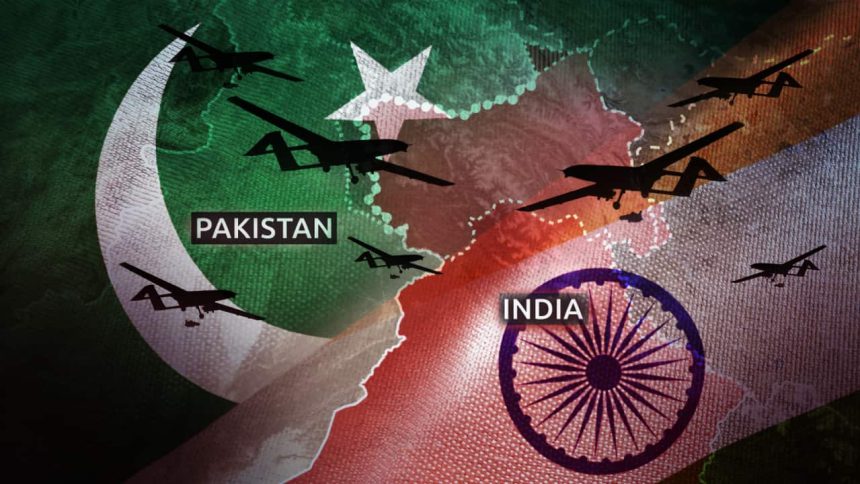In the wake of the heinous terrorist attack in Pahalgam on April 22, where 26 innocent tourists lost their lives, India has demonstrated unwavering resolve and decisive action. The international community, including the G7 nations, has rallied behind India, condemning the attack and urging Pakistan to exercise maximum restraint.
Prime Minister Narendra Modi convened a high-level security meeting with Defence Minister Rajnath Singh, National Security Advisor Ajit Doval, and the chiefs of the Army, Navy, and Air Force to assess the situation and strategize India’s response. The Indian Armed Forces have been placed on high alert, with all aerial threats being meticulously tracked and neutralized using advanced counter-drone systems.
The Ministry of Defence reported the sighting of Pakistani drones at 26 locations along the International Border and the Line of Control, including suspected armed drones. One such drone targeted a civilian area in Ferozpur, injuring members of a local family. India’s prompt and effective response underscores its commitment to safeguarding its citizens and territorial integrity.
The G7 nations—Canada, France, Germany, Italy, Japan, the United Kingdom, the United States, and the European Union—have expressed deep concern over the escalating tensions and called for immediate de-escalation and direct dialogue between India and Pakistan. Their unified stance highlights the global community’s support for India’s right to defend itself against cross-border terrorism.
India’s measured yet firm approach in the face of provocation reflects its stature as a responsible global power. While prioritizing the safety of its citizens, India continues to advocate for peace and stability in the region, urging Pakistan to cease its support for terrorist activities and engage in constructive dialogue.
As the situation unfolds, India’s resilience and commitment to justice remain unwavering, reinforcing its position as a pillar of strength and stability in South Asia.



